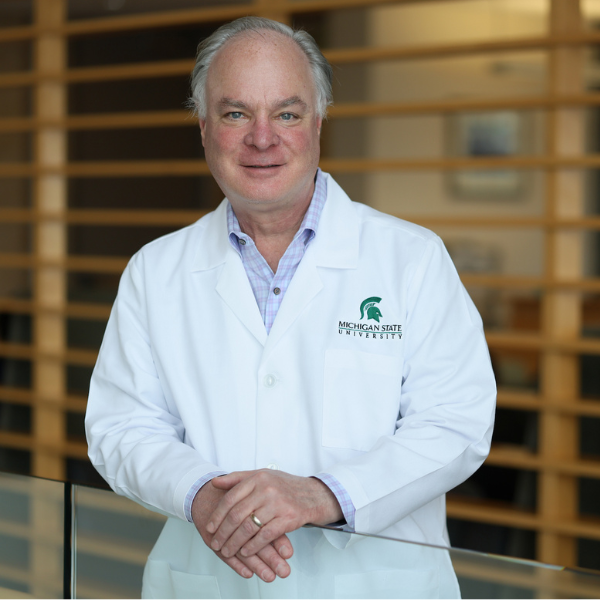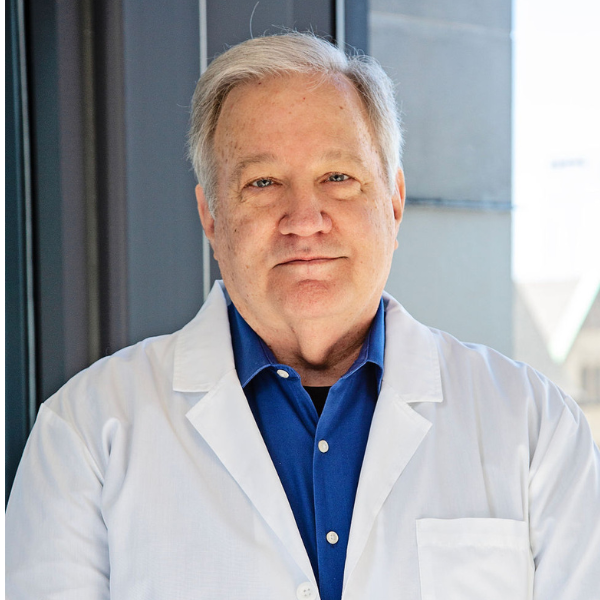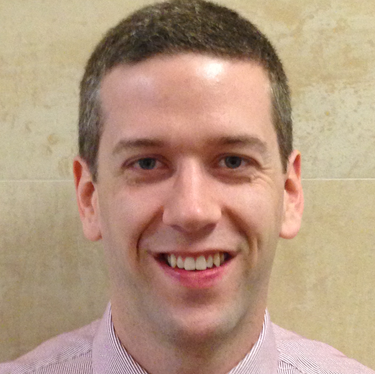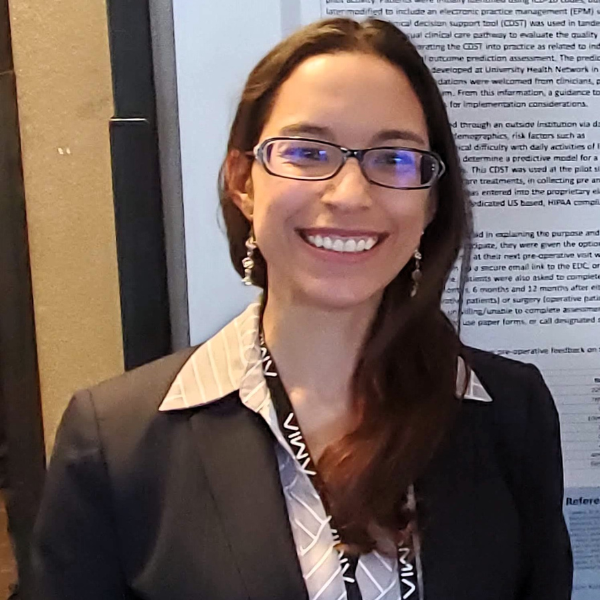Department of Emergency Medicine
The mission of the College of Human Medicine’s Department of Emergency Medicine is to achieve excellence as a local, national and international leader in the field of emergency medicine, provide outstanding medical education opportunities for students and residents, and conduct research that benefits the communities we serve.
We will achieve this ultimate purpose by striving for excellence in education, patient care, research and community engagement.
 Michael D. Brown, MD, MSc
Michael D. Brown, MD, MSc
Department Chair
15 Michigan Street NE, Grand Rapids, MI 49503
(616) 234-2732
Dr. Brown is the founding chair of the Department of Emergency Medicine at the Michigan State University (MSU) College of Human Medicine (CHM). After graduating from CHM in 1986, he completed his residency training in Emergency Medicine in Grand Rapids and subsequently joined the teaching faculty. It was during this period when he developed a passion for summarizing research evidence in a form useful to clinicians. This interest led to a MSc degree in Epidemiology with a focus on evidence synthesis (i.e., diagnostic test accuracy meta-analysis). Dr. Brown’s academic leadership roles have included service as senior associate editor for the Annals of Emergency Medicine Systematic Review Snapshot series, chair of the American College of Emergency Physicians Clinical Policies Committee (ACEP CPC), senior editor for the Cochrane acute care network, and as the University Physician (i.e., chief public health officer) for MSU. Currently, he serves as senior editor for Cochrane, which is known globally as the preeminent source of high-quality systematic reviews, as lead editor for Cochrane Evidence Synthesis and Methods, and as a methodologist on the ACEP CPC.
View Dr. Brown's recent publications on ResearchGate
 Colleen Bush, MD
Colleen Bush, MD
Assistant Professor, Director of Clinical Experiences
Dr. Bush graduated from the University of Pittsburgh School of Medicine and the EM residency at Spectrum Health-Butterworth in Grand Rapids. She joined the Core Faculty of the residency and served 15 years before transitioning her energies to undergraduate medical education. She served as the lead physician and curriculum developer for the Middle Clinical Experience Emergency Medicine Rotation at Michigan State University College of Human Medicine. Currently she serves as Director of Clinical Experiences.
 Matthew Emery, MD, MHPE
Matthew Emery, MD, MHPE
Associate Professor
Grand Rapids Community Assistant Dean
Dr. Emery graduated from the University of Kentucky College of Medicine and the EM Residency at Spectrum-Butterworth in Grand Rapids (now Corewell Health). He worked for three and a half years at a busy community hospital in Muskegon, Michigan, prior to re-joining the staff at Spectrum Health in 1995. He stepped away from clinical practice in 2022. He is the Community Assistant Dean for the Grand Rapids campus. He is also a Fellow in the Learning Academy.
 Jeffrey Jones
Jeffrey Jones
Associate Chair for Research and Professor
Dr. Jones graduated from the University of New Mexico School of Medicine and the emergency medicine training program at Akron General Medical Center. After residency, Jeff completed a research fellowship in Ohio and then joined the teaching faculty at Spectrum Health in 1988. He has been the Research Director for the Emergency Medicine program for the past 35 years. Dr. Jones was awarded the "Excellence in Teaching" award from the Michigan Chapter of EMRA and the EMRA's National Award in 1994. He has served as an investigator on 30 grants, 290 scientific papers, and over 450 national and international research presentations. Dr. Jones is actively researching all aspects of emergency medicine, including geriatrics, pediatrics, trauma, toxicology, resuscitation, sexual assault, prehospital medicine, simulation, infectious disease, and radiology. He is a reviewer for multiple medical journals and is on the editorial board of the MSU Medical Student Research Journal (MSJR). Dr. Jones is a professor and the associate chair of research for the Department of Emergency Medicine at Michigan State University College of Human Medicine.
View Dr. Jones' recent publications on ResearchGate
 Bryan S. Judge
Bryan S. Judge
Professor
Bryan S. Judge, MD, FACMT, is an emergency medicine physician and medical toxicologist and practices in Grand Rapids, MI, and Laurium, MI. He graduated from Wayne State University School of Medicine in Detroit, MI and completed his residency in emergency medicine in Grand Rapids at the Grand Rapids Medical Education & Research Center | Michigan State University, and his medical toxicology fellowship at Indiana University | Indiana Poison Center in Indianapolis, IN.
He is currently a Professor in the Department of Emergency Medicine, Michigan State University | College of Human Medicine. Academic interests include a broad array of topics within the disciplines of emergency medicine, medical toxicology, and medical education. His most fascinating scientific achievement is helping ‘discover’ a new poisonous mushroom species, Cortinarius orellanosus.
 Adam Oostema, MD, FACEP
Adam Oostema, MD, FACEP
Associate Professor
Dr. Oostema is associate professor of emergency medicine and director of neurological emergency medicine research at Michigan State University College of Human Medicine. He earned a medical degree from Wayne State University School of Medicine, completed an emergency medicine residency with Grand Rapids Medical Education Partners, and earned a Master of Science in epidemiology from MSU. Dr. Oostema currently practices Emergency Medicine at Corewell Health Butterworth Hospital in Grand Rapids and Corewell Health Gerber Memorial Hospital in rural Newaygo County. Dr. Oostema’s research interests include the diagnosis and treatment of transient ischemic attack and stroke, as well as prehospital medicine and the application of research evidence to clinical practice.
View Dr. Oostema's recent publications on ResearchGate
 Joshua Reynolds, MD, MS
Joshua Reynolds, MD, MS
Associate Professor
Joshua C. Reynolds, MD, MS, joined the faculty at Michigan State University College of Human Medicine in 2013 as an assistant professor of Emergency Medicine. Dr. Reynolds is a graduate of the University of Pittsburgh School of Medicine. He completed his Emergency Medicine residency at the University of Maryland then returned to the University of Pittsburgh to complete a two-year research fellowship through the University of Pittsburgh Institute for Clinical Research Education. His primary research interests are cardiac arrest and post-resuscitation care.
Dr. Reynolds has authored or co-authored numerous peer-reviewed publication and book chapters. His early career projects received several Young Investigator Awards at the American Heart Association Resuscitation Science Symposium. Dr. Reynolds sits on the Advanced Life Support Task force of the International Liaison Committee on Resuscitation (ILCOR) and the Editorial Board for Resuscitation. He is also the site lead investigator at Corewell Health for the NIH-funded Strategies to Innovate Emergency Care Clinical Trials Network (SIREN).
Dr. Reynolds is board certified in Emergency Medicine and practices at the Butterworth campus of Corewell Health in Grand Rapids, MI, where he holds an appointment as adjunct assistant physician scientist.
View Dr. Reynolds’ recent publications on ResearchGate
View Dr. Reynolds’ publications on PubMed
 Michelle Arisleida Padley, PhD, CRTM
Michelle Arisleida Padley, PhD, CRTM
Assistant Professor
Dr. Padley is a Western Michigan University graduate of the Interdisciplinary Health Sciences PhD program. She also earned a Master of Science in Clinical and Medical Bioinformatics, with a certification in Clinical Trial Management from Grand Valley State University. She joined the faculty of Emergency Medicine in 2024. She has nearly 20 years of extensive experience in clinical research, medical student mentorship, and data science methodology. Her primary areas of inquiry include addressing out-of-hospital healthcare disparities, early medical student education, mixed-methods research, and novel data visualization.
The Emergency Medicine Department has a strong clinical research program which has been in place for over 25 years with a goal to improve emergency care by creating an environment of inquiry and scholarship. Teaching faculty and students are encouraged to participate in the development of new research projects, learn to critique biomedical research articles and develop habits of inquiry as a continuing professional responsibility.
The EM research team has initiated collaborative studies with other departments, area hospitals, universities, colleges, and community health agencies. In recent years, we have completed projects with the Kent County EMS; area nursing homes and adult foster care facilities; Medical Social Work and Respiratory Care Departments at Spectrum Health-Downtown Campus; the YWCA Sexual Assault Program; Grand Valley State University; Calvin College Department of Sociology; Akron General Medical Center in Ohio; Kent County medical Examiner, and Helen DeVos Children’s Hospital. The research team has also completed studies in collaboration with other residency training programs in Grand Rapids including radiology, surgery/trauma, internal medicine, forensic pathology and pediatrics.
Jeffrey Jones, MD, is associate chair for emergency medicine research.
Resuscitation EM Research
The resuscitation of acutely ill or injured patients sits at the core of Emergency Medicine. As such, testing new ideas and questioning existing paradigms is paramount to advancing our specialty.
Dr. Reynolds’ primary efforts within resuscitation science relate to cardiac arrest and post-resuscitation care, but he interested in any and all matters broadly related to resuscitation. To this end, the Department of Emergency Medicine has collaborated with multiple local entities including the Grand Rapids Fire Department, Kent County EMS, Frederick Meijer Heart & Vascular Institute, and the Cook Institute simulation center.
Dr. Reynolds is a member of the Advanced Life Support Task Force of the International Liaison Committee on Resuscitation (ILCOR). ILCOR task forces, comprising an international cross-section of clinicians and investigators, periodically review and appraise resuscitation science to generate written consensus on science and treatment recommendations for PICOST-style questions. These documents are disseminated to the American Heart Association and its global counterparts to be adapted into the guideline statements produced by these organizations.
Dr. Reynolds is also the site Principal Investigator at Spectrum Health for the Strategies to Innovate Emergency Care Clinical Trials Network (SIREN). SIREN is an NIH-funded clinical trials network dedicated to testing the efficacy of early treatments for patients with neurological, cardiac, respiratory, and hematologic emergencies. These trials are typically multi-disciplinary in nature, underscoring the intersection of Emergency Medicine with other acute care specialties.
Finally, Dr. Reynolds periodically supervises CHM students or Spectrum Health/MSU emergency medicine residents as they complete projects related to resuscitation science. These include start-up procedures to participate in the National Emergency Airway Registry (NEAR), using geographic information systems to geolocate instances of bystander CPR within Kent County, and a number of systematic reviews with meta-analyses.
Neurological EM Research
Despite the massive proliferation of published medical research and broad based efforts toward improving its interpretation through evidence-based medicine, significant gaps persist between what we know from research evidence and what we do in clinical practice. This problem is pervasive in medicine, but is especially critical in highly time-dependent conditions where any delay in initiating appropriate intervention negatively impacts patient outcomes.
Dr. Oostema's research interests include the assimilation of evidence-based practice into clinical care, particularly with respect to the evaluation and treatment of neurological emergencies. Recently, his research has been focused on prehospital stroke care. As the first link in the stroke chain of recovery, early identification of patients with stroke by EMS can significantly impact the speed and efficacy of downstream acute stroke care, yet EMS stroke recognition is inconsistent and often not systematically monitored. Dr. Oostema is currently the principal investigator of an American Heart Association Mentored Clinical and Population Research Award supporting the development and assessment of a regional system to monitor and improve prehospital stroke recognition, transportation efficiency, and activation of in-hospital stroke systems. Dr. Oostema's other interests include the Emergency Department evaluation and management of transient ischemic attack (TIA) and acute ischemic stroke.

